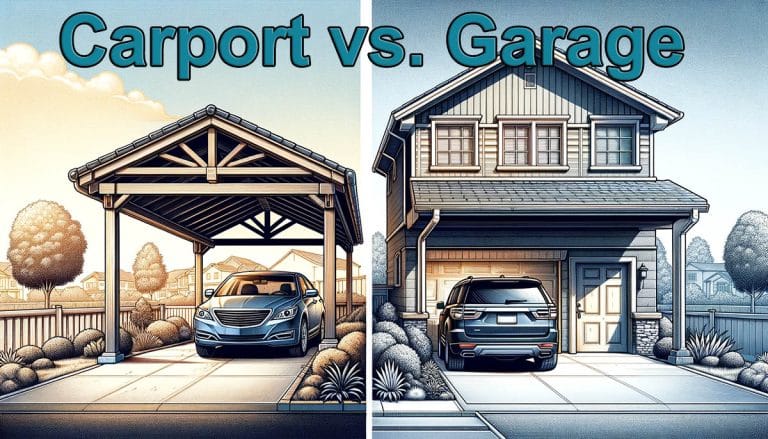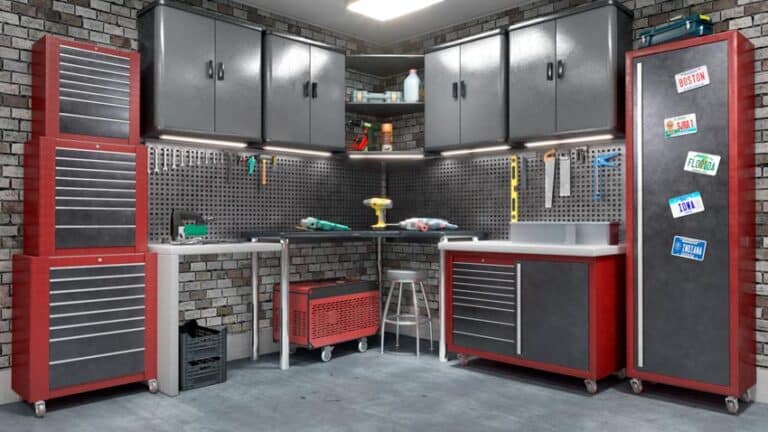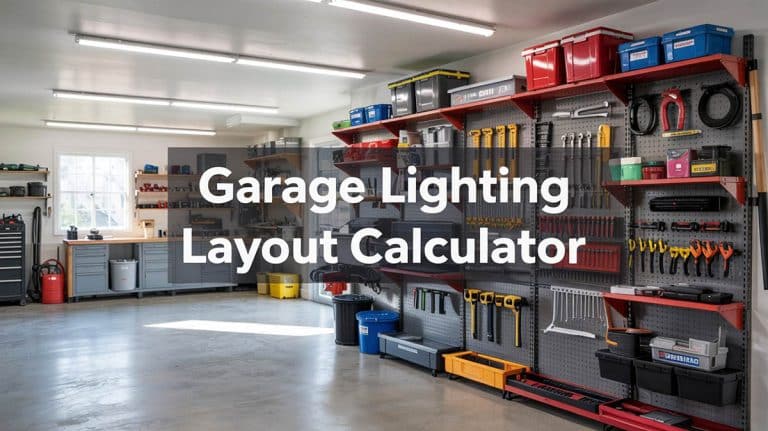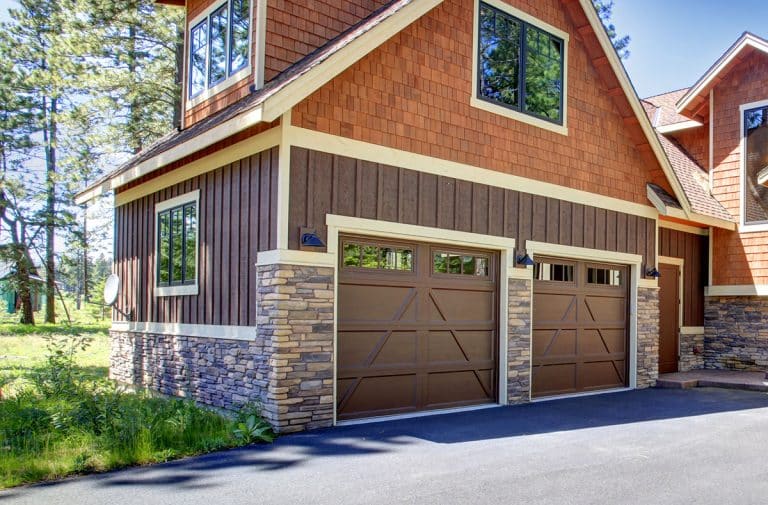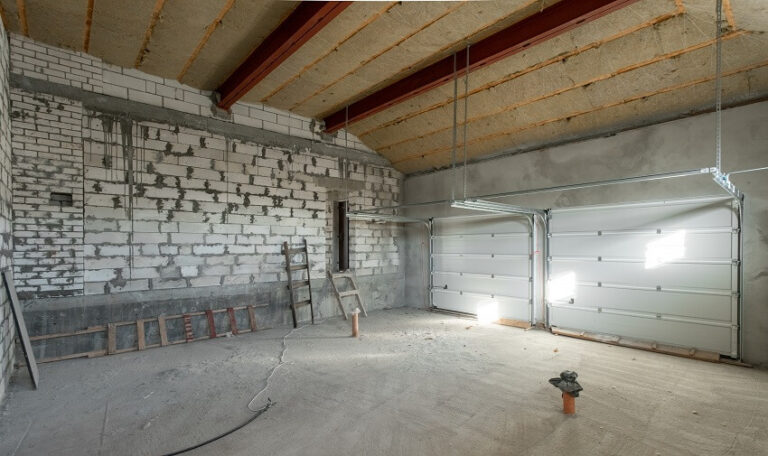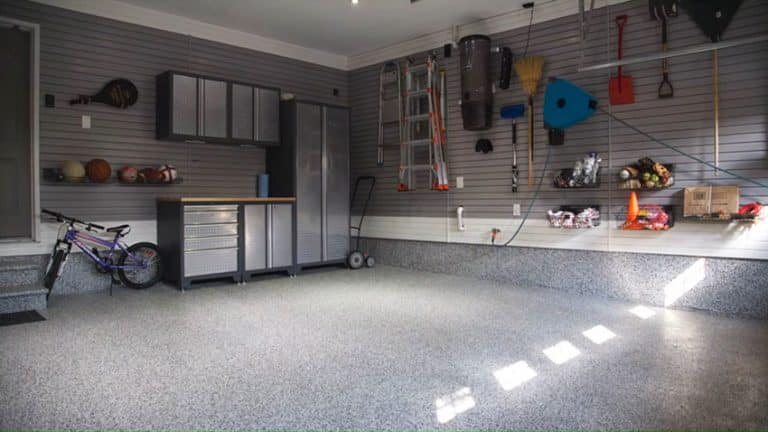Garage Floor Sealer (Types & Sealing Tips)
Here, we share our garage floor sealer guide, including the different types, cost, how to seal, tips on uneven garage floors, and the ideal sealing option that gives the best result.
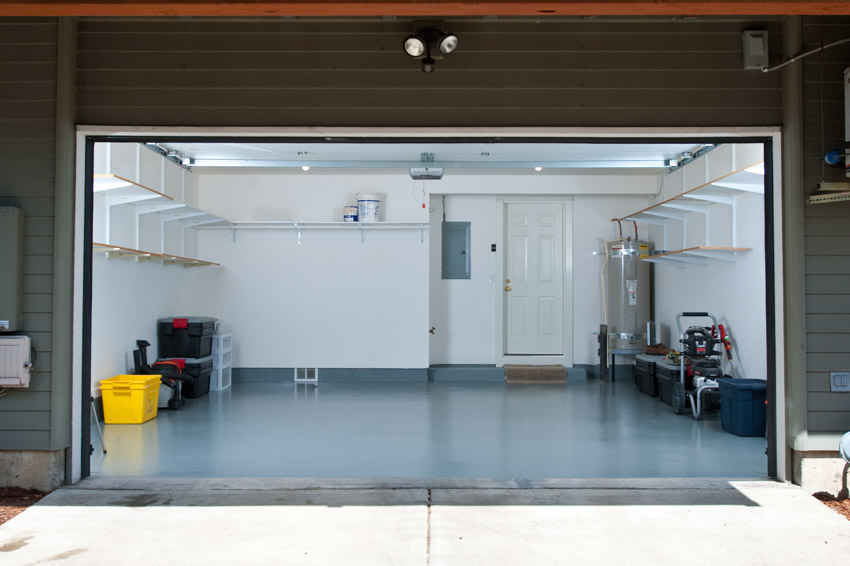
A garage floor sealer is simply the material you use to seal and protect the concrete in your garage. There is a variety to choose from, but it can be overwhelming to decide which one to use.

Upload a photo and get instant before-and-after room designs.
No design experience needed — join 2.39 million+ happy users.
👉 Try the AI design tool now
From acrylics to epoxy, what factors should you consider to be able to provide an informed decision?
One thing you can do instead is to compare the types of garage floor sealers. There are economical sealers and decorative sealers.
This means that besides protection for the concrete in your garage, there are other functions that sealers have. Choose the function you want to make the most of.
Types Of Garage Floor Sealers
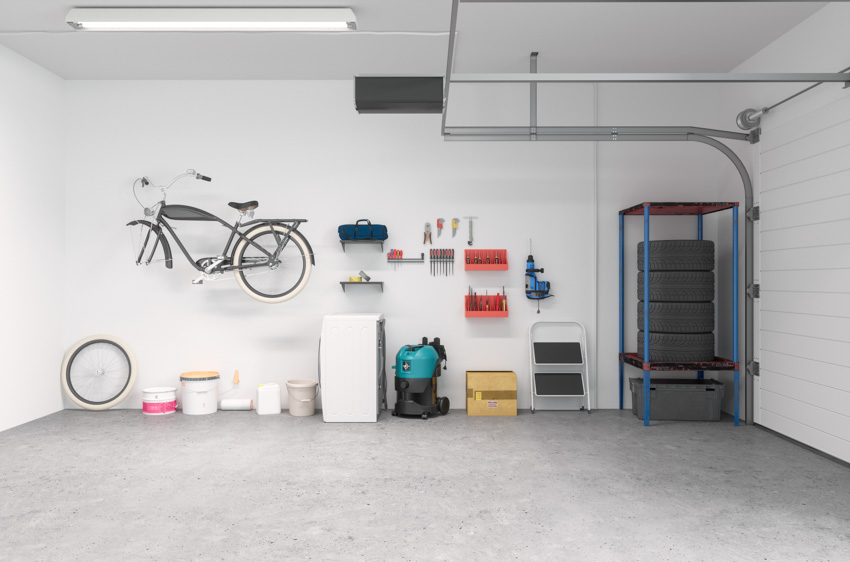
• Acrylic
• Epoxy
• Polyaspartis
• Polyurea
• Polyurethane
Some of these floor sealers are also different based on their coats. Here are a few of these types:
• Clear coating
• Colored coat
• 2-part coatings
• Single-part moisture-cured coatings
With many options to choose from, finding out more about these choices is relevant to be able to end up with an effective and informed decision. There are also many false marketing campaigns that can confuse you more.
First, decide on what you want to achieve in using a floor sealer. Next, research every piece of information you can gather about the different floor sealers available.
Match what you found in your research with your own preferences and needs. To help you with your research, here is an analysis of the difference between acrylic concrete sealer with epoxy sealer.
| Factors/Elements | Acrylic Concrete Sealer | Epoxy Sealer |
| Appearance | Clear but can be tinted (Wet and glossy look) | Thicker than acrylics
It can come in a clear or colored coat |
| Durability | More durable with its glossy finish (Depends on the type of acrylic sealer used) | Superior strength and durability (Vary depending on application and coating) |
| Chemicals | Depends on the type of acrylic sealer | 2-part thermosetting resin |
| Performance Characteristics | Protection against water & chloride intrusion
Light to moderate protection against oil, hot tire pick-up, road salts, & vehicle fluids |
Non-breathable (Protection against water & chemical intrusion)
Resistant to oil, hot tire pick up, road salts, & vehicle fluids |
| Application Process | Fairly easy to apply (Reapplication may be required every 18 to 36 months, depending on the sealer) | More involved and time-consuming (time-sensitive) |
| Stains/Abuse They Withstand | Chemical & stain resistant
Wears longer |
Abrasion-resistant |
| Other Characteristics | U.V.-stable | Not U.V. resistant |
Concrete Floor Sealer
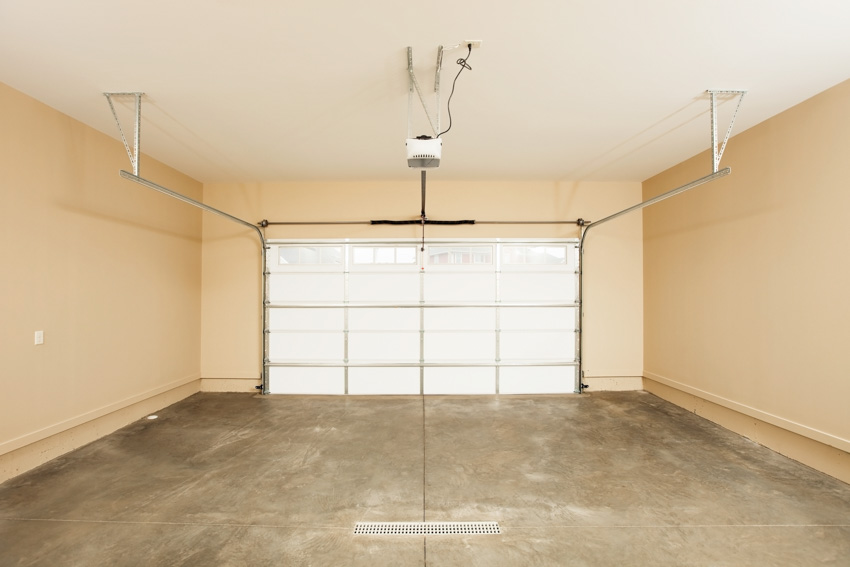
With this sealer, there are two types to consider: (1) acrylic concrete sealer and (2) concrete polyurethane sealer.
It is important to start differentiating these two in order to choose the ideal one for your needs.
Acrylic Concrete Sealer
When you use an acrylic concrete sealer, a thin and clear protective layer is applied to the concrete, which is around 1 to 1.5 mils in thickness. The layer helps protect the concrete from elements such as water and harmful chemicals.
An acrylic concrete sealer can improve the aesthetic of the floor, making it a bit darker in color and glossy in its finish, making it more durable than a less flashy matte finish. And U.V.-stable, this glossy finish is guaranteed not to turn yellowish even when exposed to direct sunlight.
The two kinds of acrylic sealers are water-based and solvent-based, where the former is less durable and easy to scratch while the latter is highly durable and resistant to scratches and chemicals.
To apply acrylic sealer, you can use one of the following:
• Low-pressure pump-up sprayer
• Paintbrush
• Rollers
Prepare the concrete by cleaning, de-greasing, and drying it out. Then, apply a thin coating on the surface. Complete two coats for best result and protection.
Concrete Polyurethane Sealer
Concrete polyurethane sealer is considered a high-quality coating, which is resistant to abrasion and scratches, as well as stains and chemical intrusion.
The highest quality sealer of this type is actually more resistant than epoxy. U.V.-stable, like the acrylic sealer, it will not turn yellowish despite exposure to sunlight.
The downside of using concrete polyurethane sealer is that it has bonding issues with concrete. The introduction of moisture-cured concrete polyurethane sealer solves this issue, though.
For installation, you would need to give it a bit of time with this type of sealer since the successful application is only activated after minutes of exposure to the air’s moisture. Make sure that the concrete is cleaned, de-greased, and dried.
Epoxy Seal for Floors
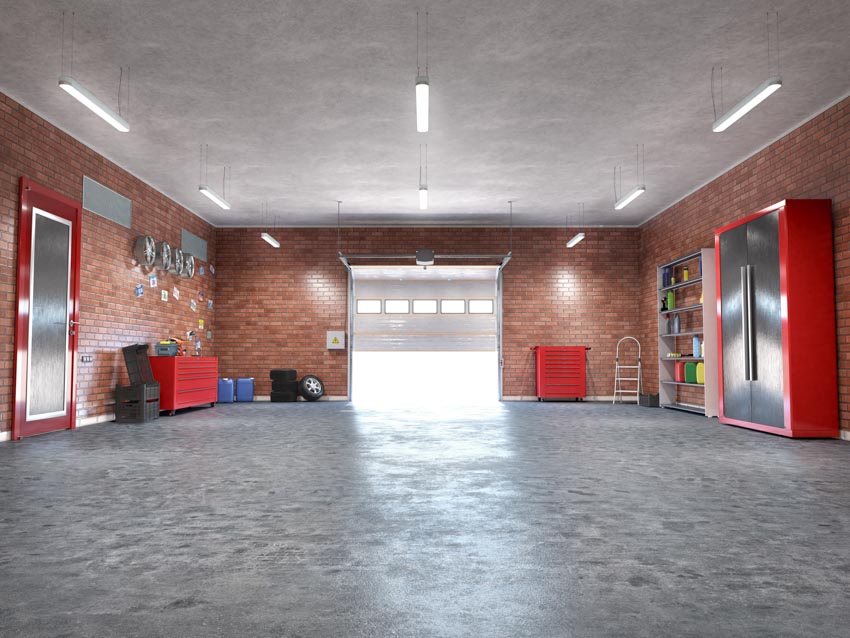
They are thicker compared to acrylic sealers, with 2.5 to 12 or higher mils dry film thickness. And its durability is guaranteed, considering it is resistant to abrasion and can take heavy traffic.
It is also resistant to water and most chemicals, preventing liquid intrusion in the concrete.
Epoxy sealers come in bare coats, clear coats, and solid colors. Their surface finishes can be satin to a high gloss, depending on your budget and what you need.
Since it is not UV-resistant, though, too much exposure to direct sunlight can lead to the color turning yellowish over a period of time.
Application of epoxy sealer can be time-consuming, especially if you DIY the entire project. But it’s possible as it is very common too, using paint rollers and paintbrushes.
You will need 30 to 40 minutes to allow the epoxy to harden. Proper concrete preparation, such as etching, might be required, depending on the concrete.
Cost of Sealing Floors in the Garage
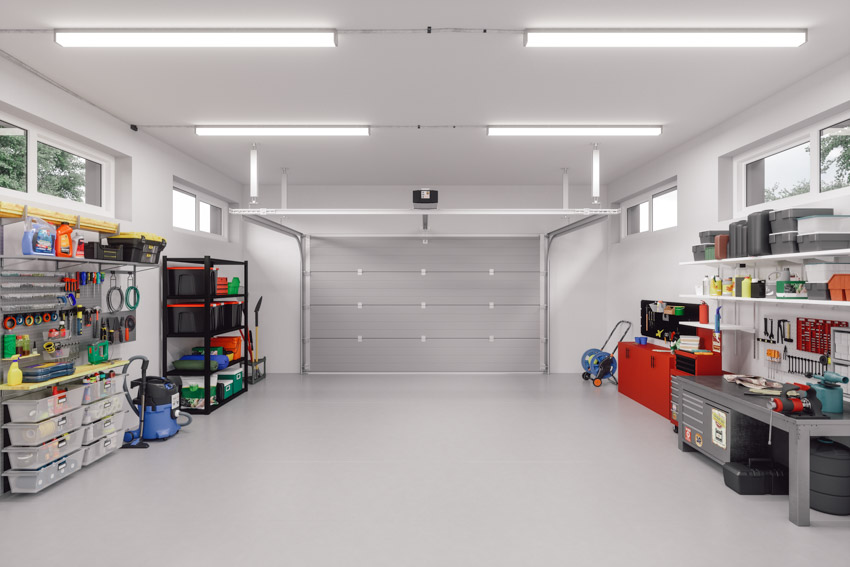
Supposing you chose epoxy sealer for your floor. The cost most homeowners cover for using epoxy for the flooring is between $1,475 and $3,133 for the entire project.
This means it costs approximately $3 to $12 per square foot of the floor. Your project will fall low or high on that range depending on the size of the project, the quality of epoxy you will be using, and if you will hire a labor hand to complete the project for you.
When considering the quality of the epoxy, bear in mind that solid epoxy is twice as expensive as its water-based version. The former lasts longer and will require less maintenance to prolong its life.
A large floor might force you to choose water-based epoxy for the entire project to be affordable, but you can use solid epoxy if you have a small area. If you work on a space floor that can fit 1 car (at most 250 square feet), you may need a budget of approximately $750 to $3,000.
If you’re working on a space that fits 2 cars (around 400 to 500 square feet), you need around $1,200 to $6,000 to complete your project.
How to Seal Carport Floors
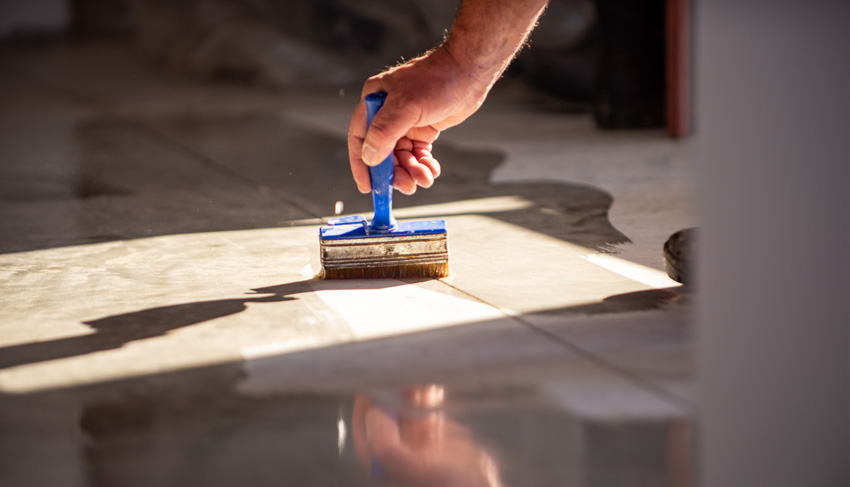
If you don’t know how to start the project, here are the simple step-by-step instructions you can follow.
1. Prepare all the materials you need. Make sure you choose the best sealant for your floor (The most popular choices are epoxy, acrylic, polyurethane, and silane/siloxane)
2. Clear and clean the carport
• Remove and clear everything within it
• Sweep the floor and make sure you get all debris and dirt out (You can do it with a leaf blower instead!)
• Power wash the floor, but if you don’t have one, intensely scrub the floor with a cleaner (Check and make sure that the floor is thoroughly cleaned, especially oil and grease)
• Remove excess moisture and residue of the cleaner using paper towels (or dry cleaner if you can afford it)
Make sure that the floor is completely dry (Tip: to make sure that the floor is completely dry, wait for 24 hours before moving on to the next steps)
• Mix and apply your sealant. Read the instructions that come with the sealant you bought, especially since different products have their own respective techniques to optimize the result
• Re-apply your sealant. Do the second layer the next day or after a couple of days (Depending on the manufacturer’s instructions)
• Leave the coat to fully dry and ventilate your carport space properly
Garage Door Seal For Uneven Floor
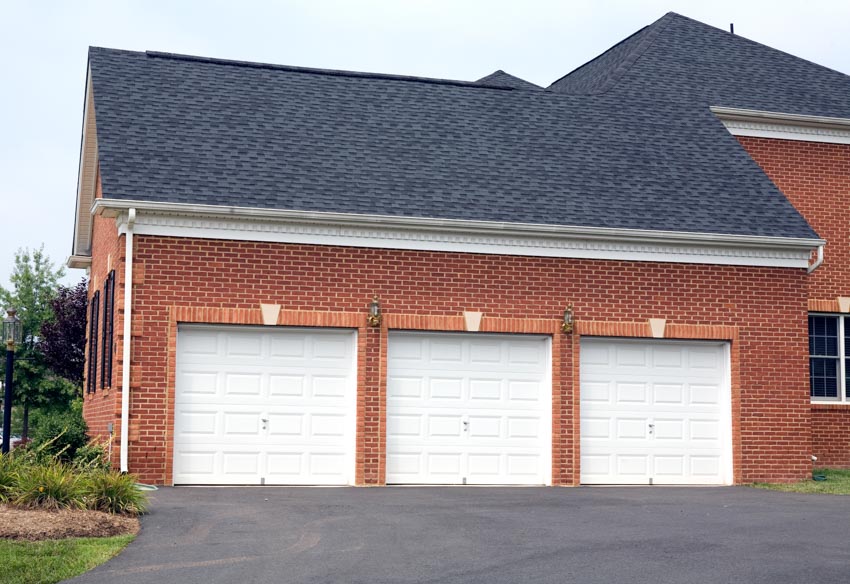
It might be due to the years of the concrete settling. In dealing with an uneven floor, here are the options you can look at:
• Re-level the floor by pouring concrete on it
• Use special products to lift the concrete up
• Use an oversized bottom seal
• Install door threshold – works on less than 1-inch gaps
• Increase the closing limits of the carport door opener: depends on the different types of garage door openers. It is advised to read the door opener instructions (Better to be combined with another method to completely accomplish the job)
Best Carport Floor Sealer
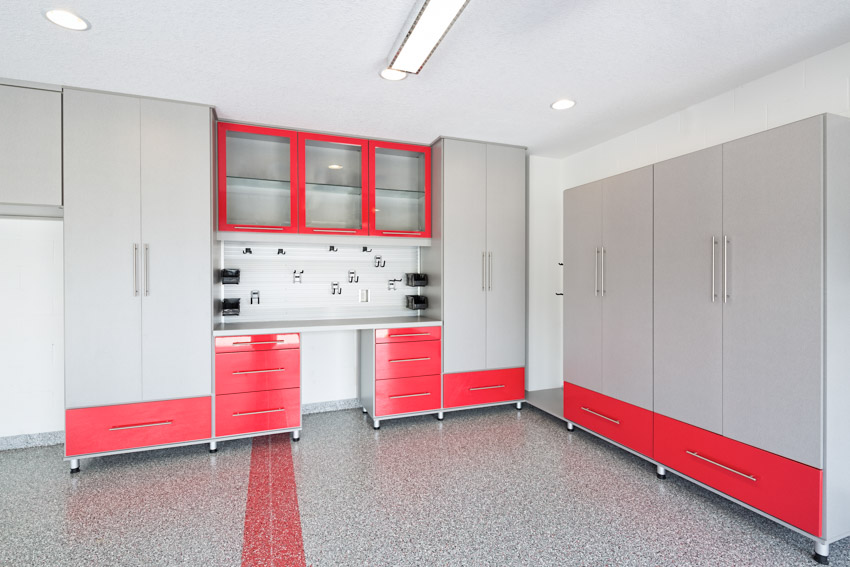
There are different factors you can consider for comparison and come up with the best sealer for floors used in the common types of garages. In general, though, here are the best floor sealers based on specific factors:
• Multi-coat Epoxy and Polyurethane Systems: appearance, durability, and quality
• Polyaspartic Garage Floor Systems: fast installation
• Epoxy Paint Kits: easy purchasing process (online), easy application, & cost-effective
• Acrylic Sealer: excellent glossy aesthetics & less effort in concrete preparation
• Penetrating Carport Floor Sealer: long lifespan (lasts for years before re-coating is needed)
• Concrete Densifiers: excellent durability & easy application
With these different sealers, you only need to figure out the factors you prioritize above else to make an informed decision.
Is Floor Sealing for the Garage Worth It?
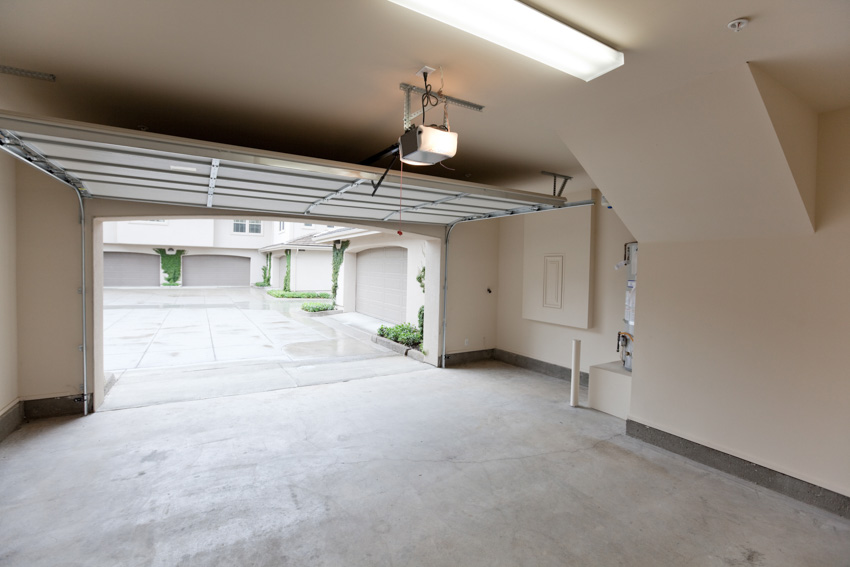
Is it worth sealing the carport floor using a sealant that you would need to re-apply now and then? Probably not. But it might be worth considering a sealer that can protect your floor for a long time.
If you’re considering using an epoxy sealer for your floor, it is highly durable and easy to clean up, which may be factors that can appeal to you and make it worth it.
To figure out if it’s worth it for you, decide on the factors you want to prioritize and choose the sealer that can accommodate your specific needs and preferences.
Should I Seal Or Epoxy the Floor in My Garage?
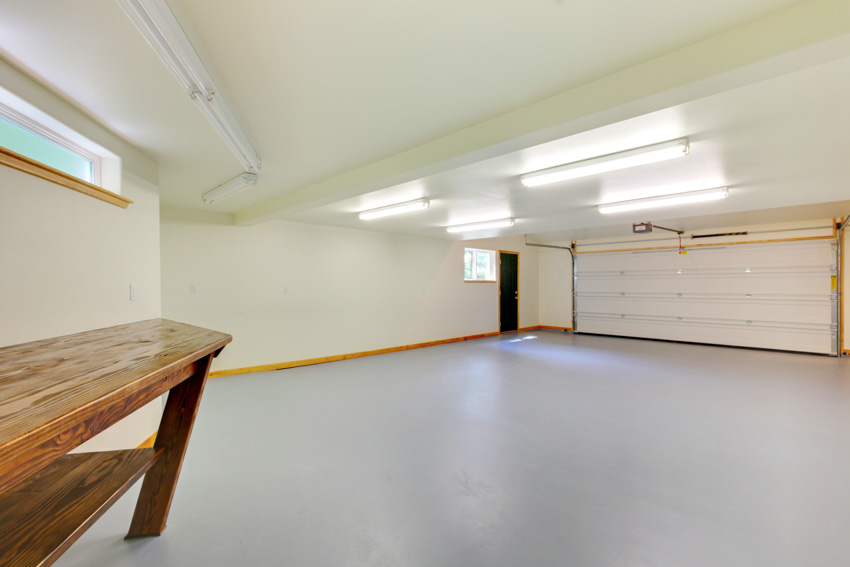
You can seal your flooring using an epoxy sealer, or you can choose other kinds of sealer to accomplish this job. You can even use water-based sealants if this is what you prefer for your concrete flooring. Compare the different sealants and decide what to use in sealing the floor.
See more related content in our article about garage floor ideas on this page.

